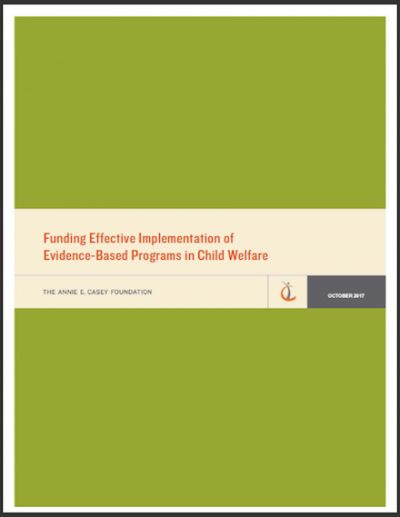Documented Success
Effective evidence-based models have been documented in several child welfare service categories, including parent education and child abuse prevention.

This brief shares eight strategies to help child welfare agency administrators and partners fund and sustain evidence-based programs that benefit children and families. These strategies — presented in the context of a stage-based framework — consider the costs, funding streams, partnerships and allocation of resources that are both specific to child welfare systems and necessary for effective implementation. Readers will also gain insights from agency leaders interviewed in nine jurisdictions across the United States, where evidence-based programs have been successfully implemented and sustained. These interviews reveal real-world challenges and the methods that the leaders used to address these challenges.
Implementing evidence-based programs is a detailed process — one that extends from identifying the right models to finding ways to sustain programs that work. For child welfare agencies to be successful, adequate and well-directed planning and resource allocation are critical at every stage.
We hope you'll find value in this report. We’d love to get a little information from you, which we'll use to notify you about relevant new resources.